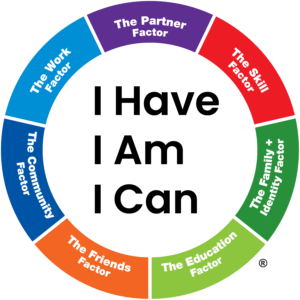Resilience isn’t just for Olympians. Here’s how you can master it!
The Paris Olympics have been marked by innumerable physical feats. Athletes are jumping higher, running faster and somersaulting more precisely than ever before. But as impressive as their athleticism is, it’s what you can’t see – their resilience – that is arguably even more awe-inspiring.
Consider Simone Biles. After withdrawing from the Tokyo Olympics due to the “twisties”, a phenomenon in which gymnasts lose their perception of their body while in the air, the US athlete returned to the Paris Games with a vengeance, adding four medals to her collection.
You don’t need to be a professional athlete to build this kind of resilience, though it won’t happen overnight. So, how can you foster your own Olympic-level resilience?
Is resilience just ‘bouncing back’?
“Resilience is more transformative than simply bouncing back,” says Amanda Third, co-director of Western Sydney University’s Young and Resilient Research Centre. “We may experience challenges followed by an upward trajectory, but we never go back to the same place we were in.”
For example, 800-metre UK runner Ben Pattison was diagnosed with Wolff-Parkinson-White syndrome, a condition that caused his heart to beat up to 250 times per minute in training. He underwent heart surgery in 2021 and was told he might not be able to run again. However, he went on to win bronze at the 2023 World Championships three years later, and now he’s competing in Paris.
Such resilience doesn’t mean you no longer struggle, says Hugh van Cuylenburg, author of The Resilience Project. Rather, you learn to acknowledge those feelings and find ways to push beyond them.
Is resilience just internal?
It’s fair to assume resilience is an entirely internal process, which to some extent it is. However, as psychologist and director of The Resilience Centre Lyn Worsley notes, it’s largely influenced by the people around you.
“Resilience isn’t necessarily the person in the middle, it’s actually their community and the people around them cheering them on,” she says. “It’s about who is in your life, not what you’re doing.”
This is why most Olympians thank their family, coaches and friends during interviews following a win, attributing much of their success to the people around them.
Why is resilience important?
Everyone will navigate some form of change, failure or disappointment in life, Third says. For example, Olympic swimmer Cameron McEvoy, failed to claim a medal at the last three Games. Instead of giving up, he significantly rejigged his training regimen and went on to win gold in the men’s 50-metre freestyle event in Paris. Resilience didn’t shield him from the frustration of his previous losses, but it helped him grow from them, transforming negative experiences into a positive learning outcome.
“Resilience is fundamental to being able to confront, survive and thrive in a deeply uncertain and transforming world,” Third says.
How can I build resilience, and can I lose it?
Building resilience is a lifelong process, Worsley says. Though you can’t necessarily “lose” resilience, it’s possible to feel it has diminished, often during periods in which you are more removed from others.
At times like these, Worsley suggests referring to the “resilience doughnut” framework. At the centre of the doughnut are an individual’s key beliefs: their awareness of those who support them, how they view themselves, and the confidence they have in their own abilities. The more positive they feel about these things, the more resilient they will be. To strengthen these beliefs, Worsley recommends nourishing three of seven external factors: your partner, skills, family and identity, education, friends, community and money.

“Always have three factors going strong,” Worsley says. “Find the areas of strength where you feel really connected, loved and supported, and do more of those. And find ways to link your three strongest factors in one activity. So, if you’re a writer, you might develop a writing group, or plan to go to the writers’ festival with friends you went to university with.”
Gratitude, empathy and mindfulness
Gratitude, empathy and mindfulness are also key resilience builders, Cuylenburg says. “Write down three things that went wrong today, and three things you’re looking forward to. Do something kind for someone else. And practise mindfulness, the ability to just be wherever you are. The more mindful you are, the more likely good things will happen around you, and the more likely you are to step up for someone else.”
Notably, letting something go doesn’t necessarily mean you lack resilience, says Dr Judith Griffiths, Though many Olympians have overcome adversity to return to the Olympics and win medals, there’s equal resilience in simply finishing a task and deciding that’s enough.
“Sometimes being resilient is about surviving a situation rather than having a positive outcome,” Griffiths says. “The ability to bounce back is ultimately dependent on whether we believe we can change the outcome of a situation.